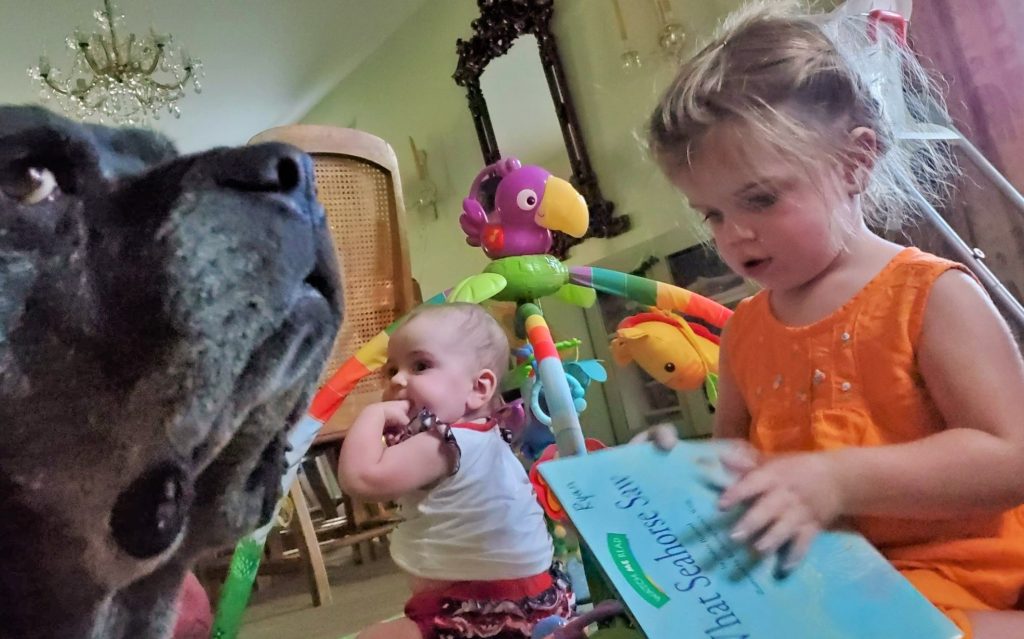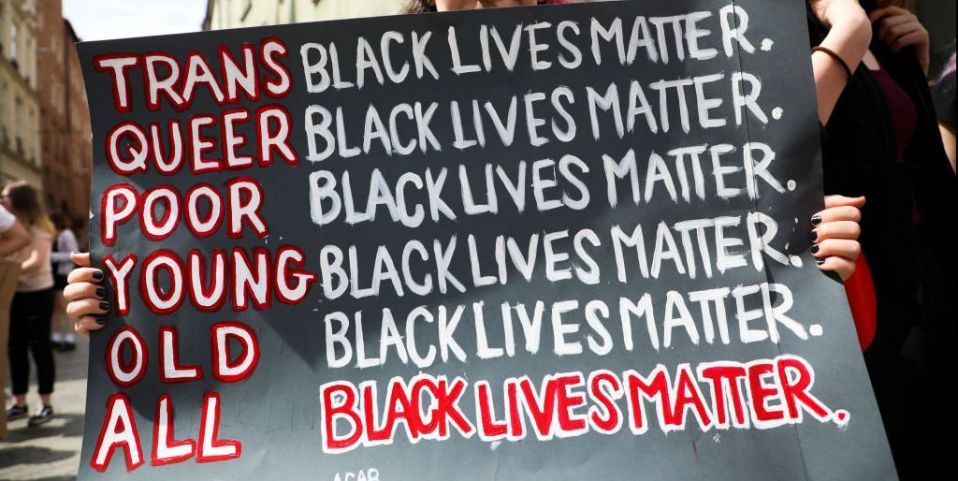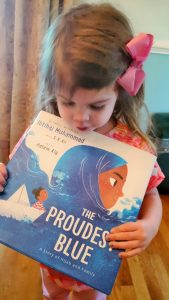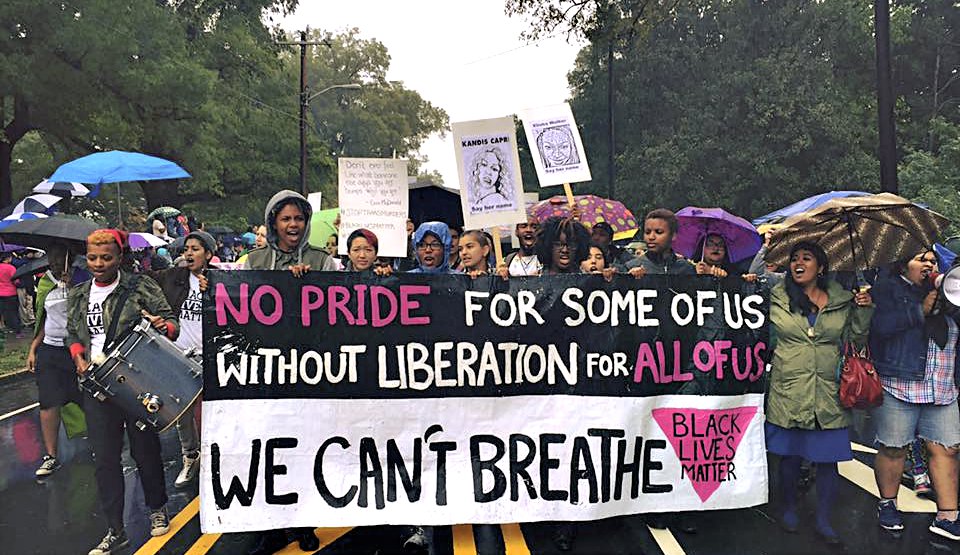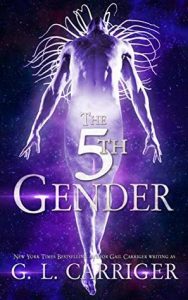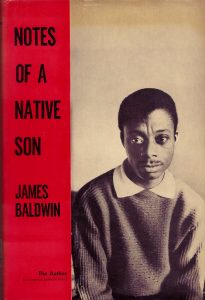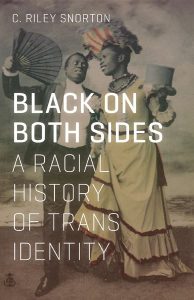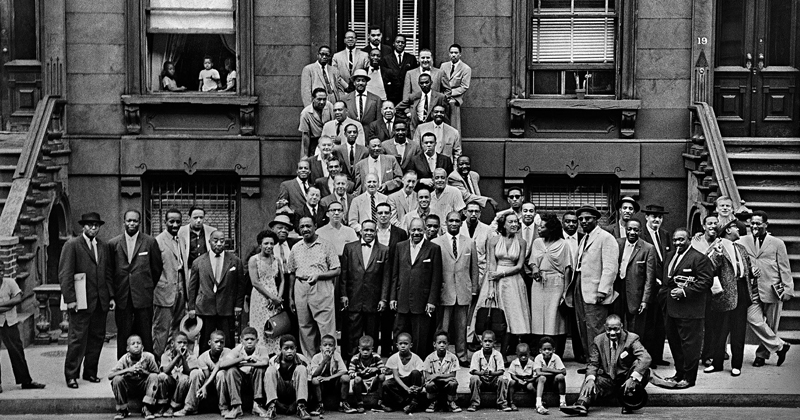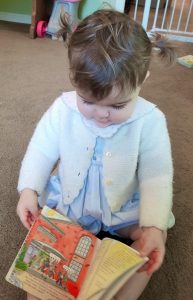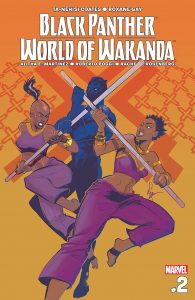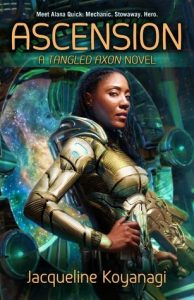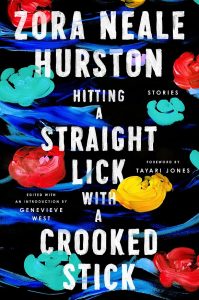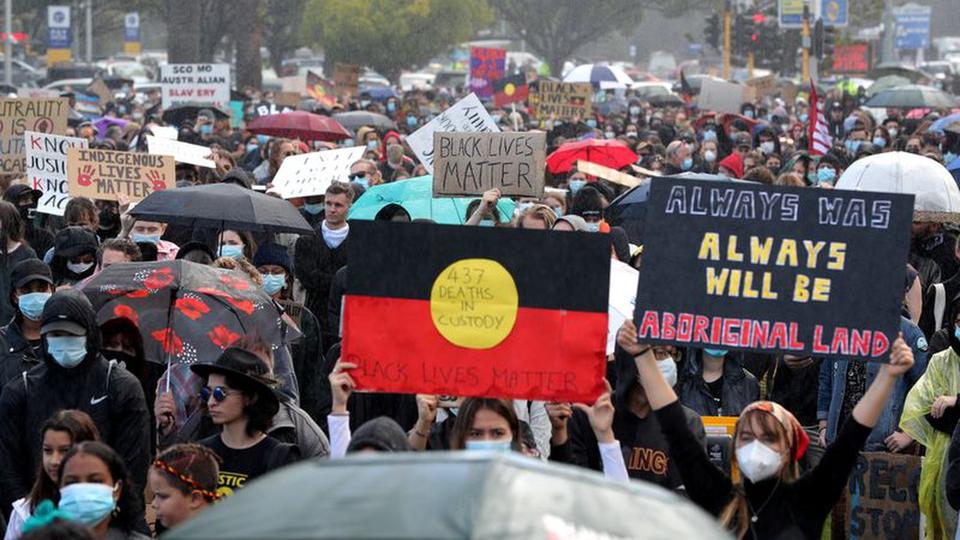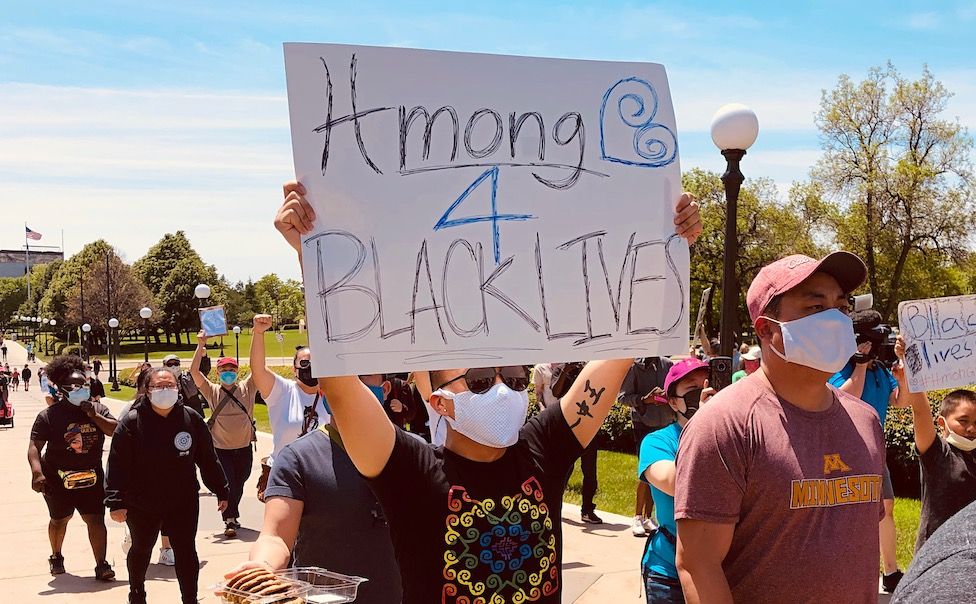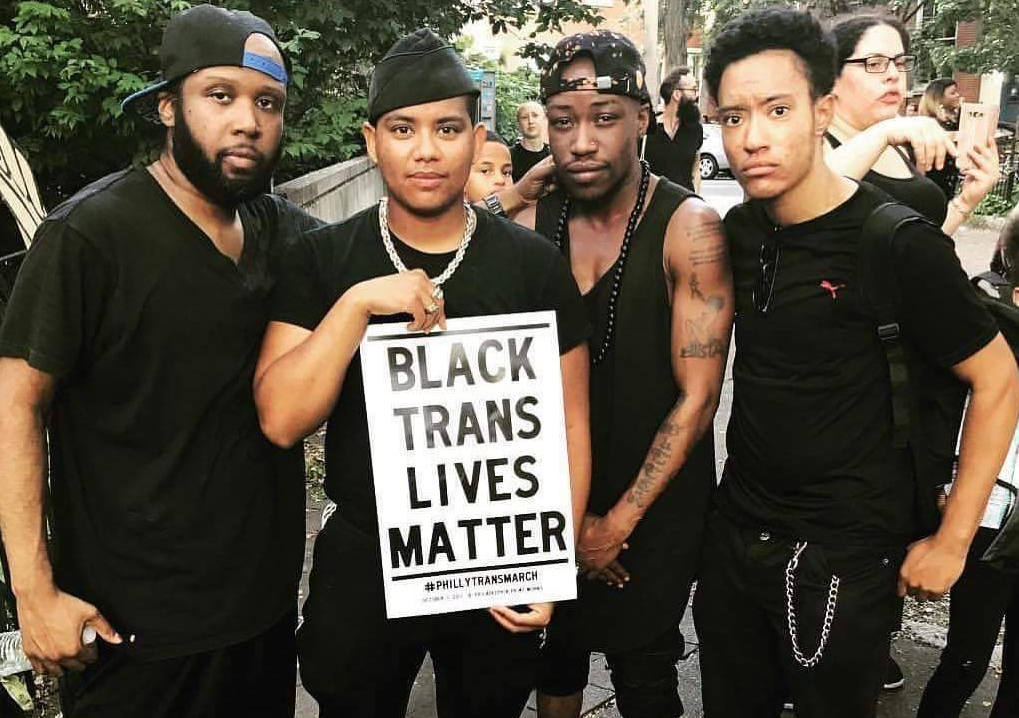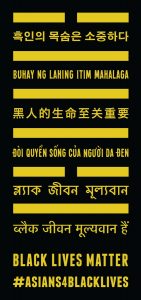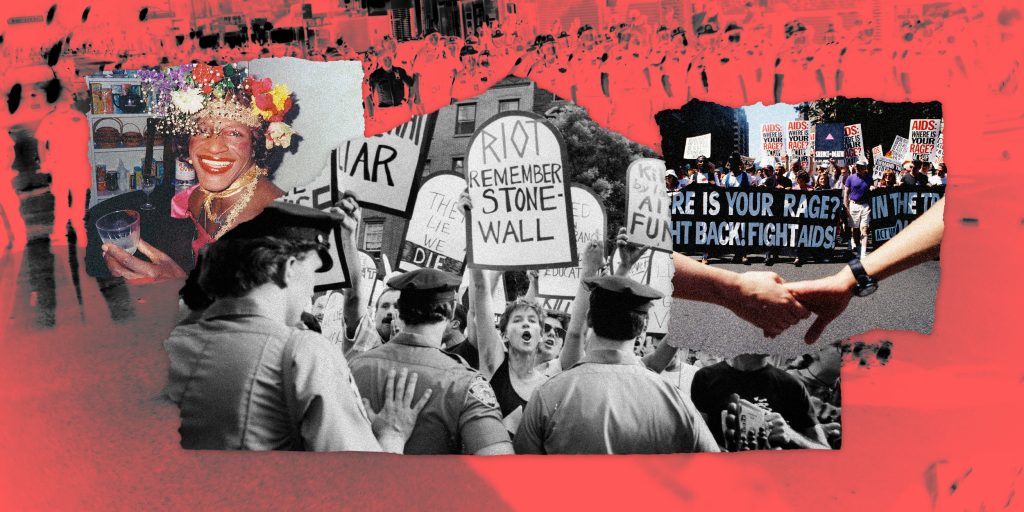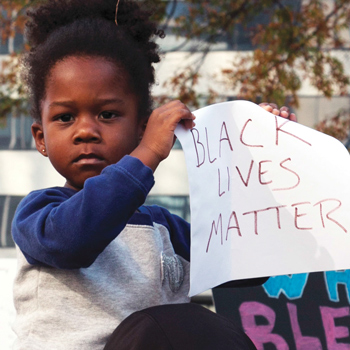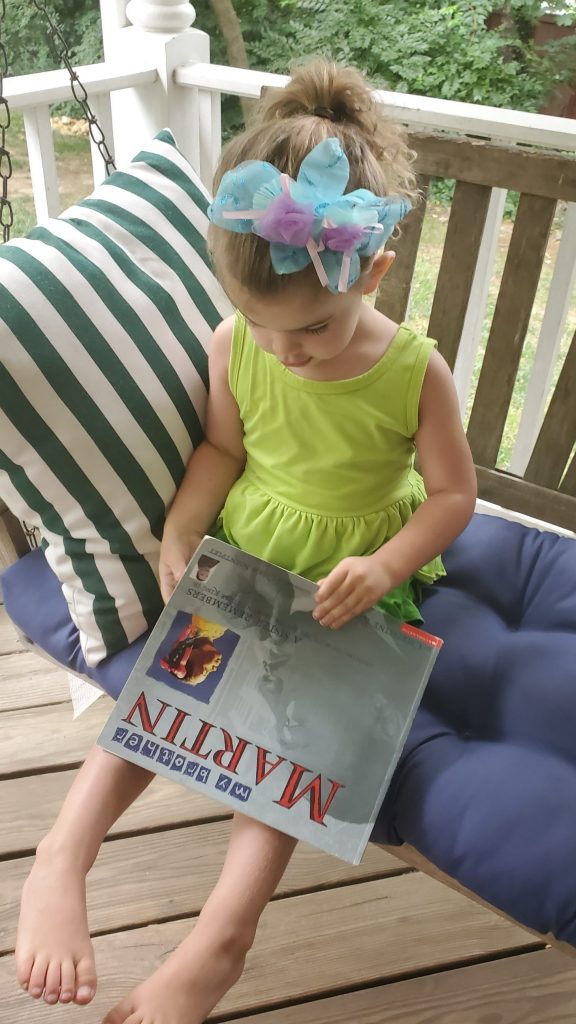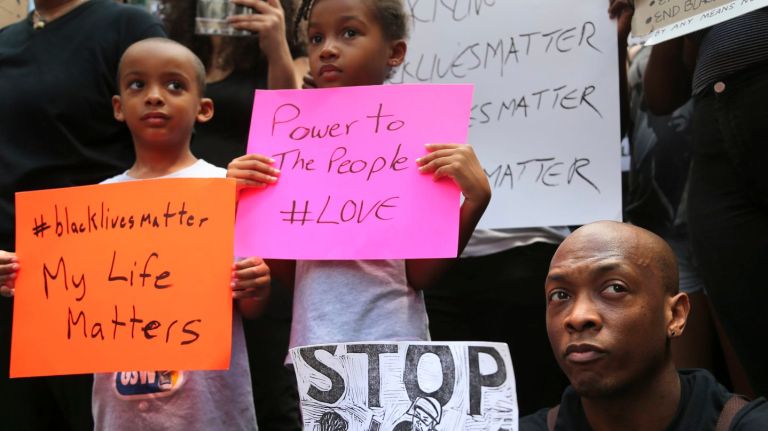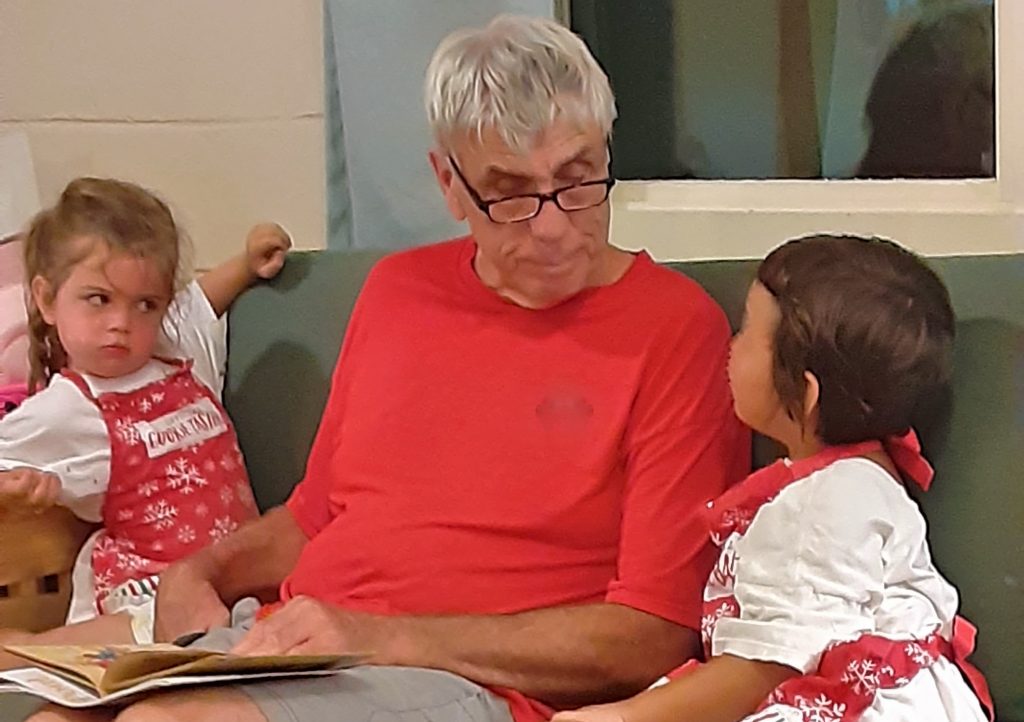
Most medical professionals agree that a reading habit is much healthier than a cocaine habit or a heroin habit (the ones that don’t are the same dentists who don’t suggest brushing your teeth). For one thing, reading is good for your physical and mental health. You probably know at least some of these benefits of reading every day, but just to review briefly:
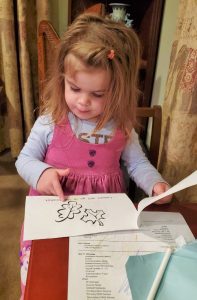
- Improves brain connectivity
- Increases vocabulary
- Increases comprehension
- Readers are more able to empathize with others
- Aids sleep readiness (if it’s a physical book)
- Reduces stress
- Lowers blood pressure
- Lowers heart rate
- Helps reduce depression
- Reduces cognitive decline with aging
- Lengthens lifespan
So, everyone should read, and it should start at an early age. According to doctors at the Cleveland Clinic, parents should start reading to/with their children from infancy through elementary school years.
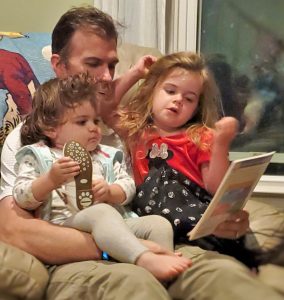
- Builds warm, happy associations with books
- Increases the likelihood that kids will enjoy reading in the future
- Reading at home boosts school performance later on
- Increases vocabulary
- Raises self-esteem
- Builds good communication skills
- Physically strengthens the human brain
- Builds attention span
What Should You Be Reading?
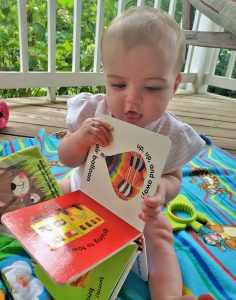
Whatever you can get your hands on! Even before they know how to read, children will learn reading habits such as which way to hold a book and finding familiar pictures or letters on a page. It’s important to expose kids to books both above and within their current reading ability, in a wide variety of genres.
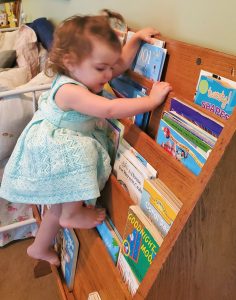
If you want some guidance on what is age-appropriate for children, you can get advice on-line and/or in actual books. Each grade level in school typically requires students to pass reading skill tests before passing to the next level. Libraries are an excellent resource for book suggestions for children of any age or reading ability.
Every child learns differently and at a different pace. Whether in real life or in your writing, it is entirely too easy to limit children by expected levels or shame a child for not conforming to expectations.
Types of Readers
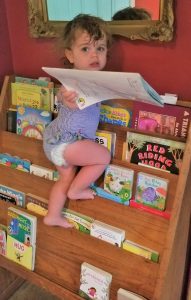
When it comes to reading habits, to each his or her own. To use a biology analogy, the “family” of readers includes numerous “genera.” In some instances, there are even “species.”
Just about every reader belongs to more than one species to a greater or lesser degree. Many people adjust their reading habits as circumstances allow, changing when children are born or a job change requires a different commuting style.
High Need-for-Achievement Readers

These readers read almost exclusively within their professional area, e.g., mathematics journals or business publications or medical research papers, etc. These readers may or may not enjoy their reading, but they read nonetheless. Some professions, such as teachers and paramedics, require continual study and testing to maintain up-to-date certifications to practice.
OCD Readers
If you start a book, you finish that book, no matter what. Anything else feels like failure. For more information about the difference between obsessive compulsive disorder and quirky fixations, check out this post I wrote about the character possibilities of each.
Spiritual Readers
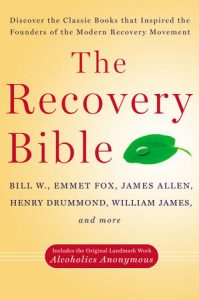
Although this group includes those who read (and study) the Bible, it also includes anyone whose goal is spiritual enlightenment and growth. Many Muslims read and recite the entire Qur’an during Ramadan every year as a form of meditation. Writings by His Holiness the Dalai Lama and Buddhist monk Thích Nhất Hạnh are widely read by people of many faiths.
Book Groupies
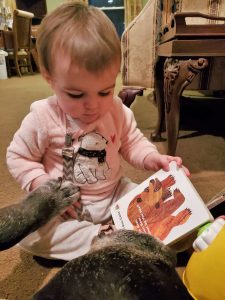
These readers want someone to talk with about their reads—which can be more or less academic. Depending on how books are chosen, they are likely to end up reading things they would never have chosen for themselves, which can be good—or not so much. Book groups often have a specific focus, such as current fiction, or botany books, i.e., anything from the genre preferences.
Friends’ Reads
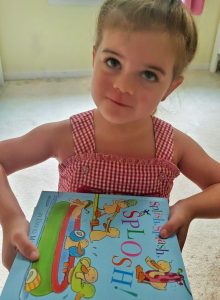
Much like a book group, except it’s whatever one’s bridge buddies, neighbors, family members, et al. are reading, recommending, and/or lending. Depending on the interests of friends, this can lead to a very eclectic reading list. Reading what friends recommend or enjoy can strengthen social bonds by encouraging discussion of books read in common.
Bestseller Addicts
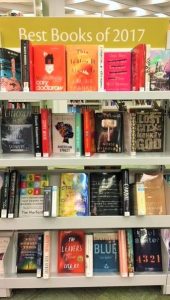
These readers are up-to-the-minute at the water-cooler and/or cocktail hour. They often operate on the presumption that if it appeals to enough people to be a bestseller, a book will appeal to themselves as well. The traditional gold standard here is The New York Times. The Times tracks the following categories:
- Hardcover fiction
- Hardcover nonfiction
- Combined print & e-book
- Paperback trade fiction
- Combined print & e-book
- Paperback nonfiction
Note: These bestsellers divisions take account of readers’ format preferences and allow for combining with one’s genre preferences.
Genre Loyalists
These people know what they like and stick to it: a genre is characterized by similarities of form, style, or subject matter. Accordingly, pretty much any category of book is a genre—and I’m probably missing some here, but you get the idea:
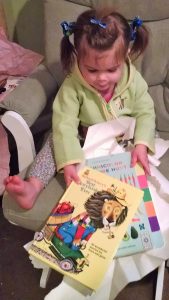
- Literary fiction
- Mystery/detective fiction
- Thriller
- Horror
- Historical fiction
- Romance
- Humor
- Western
- Bildungsroman
- Science fiction
- Fantasy/fairy tales
- Magical realism
- Biography
- Autobiography
- Memoir
- Exposé/tell-all
- Creative non-fiction
- Nature writing
- Environmental activism
Genre Junkies
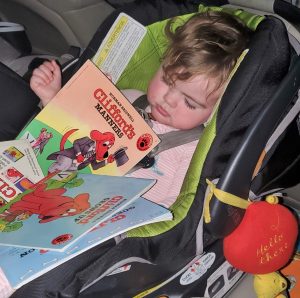
Often read more than one book a day, limited to a specific genre, sometimes a limited number of preferred authors. Genre Junkies tend to prefer genres in which a plethora of books are available. A fan of books about Arctic Circle Siberian reptile varieties is likely to run out of material much more quickly than a fan of paranormal dystopian romance fantasy books.
Binge Readers
Exactly what it sounds like. These people often skip meals and sleep when a book is particularly hard to put down. Accomplished binge readers may even learn to walk, dress, cook, and feed the dog without putting down the book in their hand.
The Eclectic
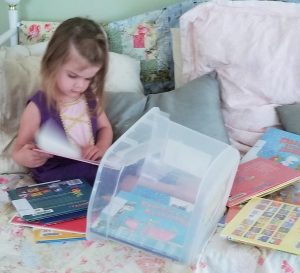
Reads anything and everything: blogs, poetry, nature, non-fiction, fiction, sci-fi, or whatever. An interesting book from thirty years ago is no lower on the list than the absolute latest best-seller. Eclectics are often bright, inquisitive, and frequent readers.
Ping-Ponging
Some readers have multiple books going and bounce back and forth among them. The bedside book, the lunch break book, the evening book, the boring book they know they should read for some obligation but just can’t seem to make it through… I haven’t seen any formal studies on the subject, but I would imagine that ping-ponging readers would be very good at multi-tasking.
Mini-Readers
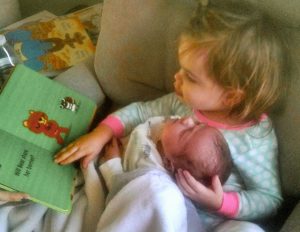
Some people have such packed schedules, they can seldom read for more than fifteen minutes at a time. A person who is able to keep track of characters and plotlines despite snatching only small doses has to have a pretty-good memory.
Night Readers
Generally caretakers or parents, some readers have to wait until their charges are asleep before picking up a book. Parenting and caregiving are both stressful occupations, and reading during naptime or after bedtime can provide absolutely necessary stress relief for Night Readers.
Self-Rewarders
Some people use reading as a form of reward, much as others might promise themselves a piece of chocolate or pair of shoes for completing an unpleasant task. Anyone who enjoys reading could be a self-rewarder: a doctor can only read the latest sci-fi bestseller after reading the latest medical journals; a parent can only read after finishing the laundry; a binge reader has to put the book down until dinner is finished.
Strugglers
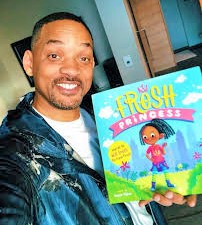
As a visitor to a blog about writing and reading, you are probably someone who enjoys reading on some level. However, reading is difficult and not enjoyable for many adults. Some researchers estimate that 1 in 7 adults in the US are functionally illiterate; dyslexia, disrupted schooling, dyspraxia, and many other reasons could lead to a person reaching adulthood with only enough reading skill to be able to function in society.
When? Where?
Besides what we read, our reading habits include when and where we read.
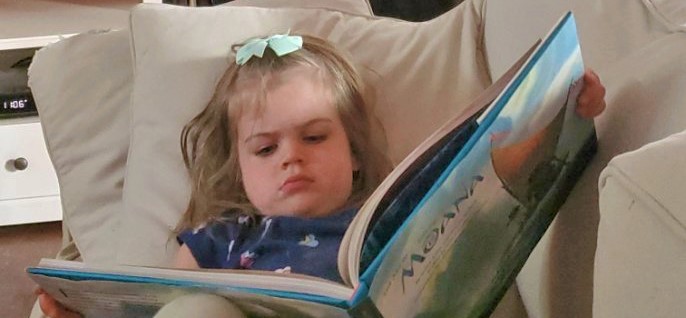
- Transit readers: they read on planes, trains, automobiles, and subways. Very careful transit readers may be able to read while walking; audio books make this much easier.
- Bed-time readers: exactly what it sounds like.
- TV readers: while one’s partner/house mate/family members watch something unappealing on TV, they hang out companionably and read.
- Vacation readers: weekends, holidays, and vacations, kicking back with a good book.
- Not recommended because it isn’t daily.
- Boredom readers: any waiting room or line that goes on forever.
Modern Options
Last but not least, how do we read? Today there are more options than ever. There’s no reason not to read every day! The three basic options:
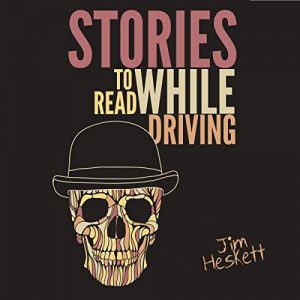
- Physical books: the traditional option, most researched, with best/most positive effects on health
- E-books (available on devices from smart phones to tablets to computers to dedicated devices such as Kindle and Nook). Often the choice of people with vision issues (any book can be LARGE PRINT), frequent travelers (who once went abroad with a dozen books or more weighing down the luggage), and anyone who likes having a light-weight, portable library at hand.
- Audio books: the choice for someone who wants to do something else simultaneously (e.g., go to sleep, knit, make dinner). Can contribute to distracted driving, so don’t do that while behind the wheel. Audio books are also indispensable for people with impaired vision.
Do other formats have the same health benefits of physical books?
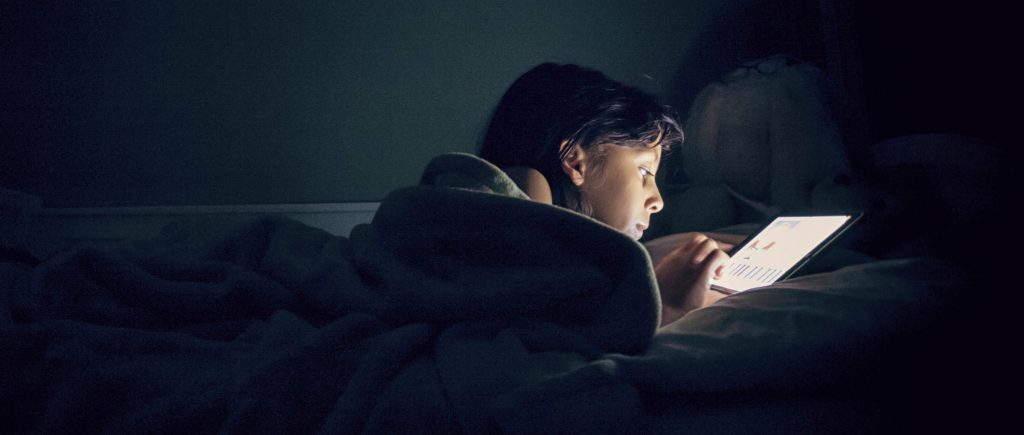
A study by Beth Rogowsky at Bloomsburg University “found no significant differences in comprehension between reading, listening, or reading and listening simultaneously” using e-readers—and the test was limited to comprehension. It’s too complicated to get into here, but you can check it out. By and large, the effects of reading physical books daily are well-documented. E-books offer some but not all of those benefits. Audiobooks are the great unknown.
Bottom line: develop or nurture your daily reading habits. There is much evidence that it’s good for you, and no negative side effects on record.
